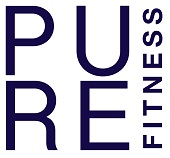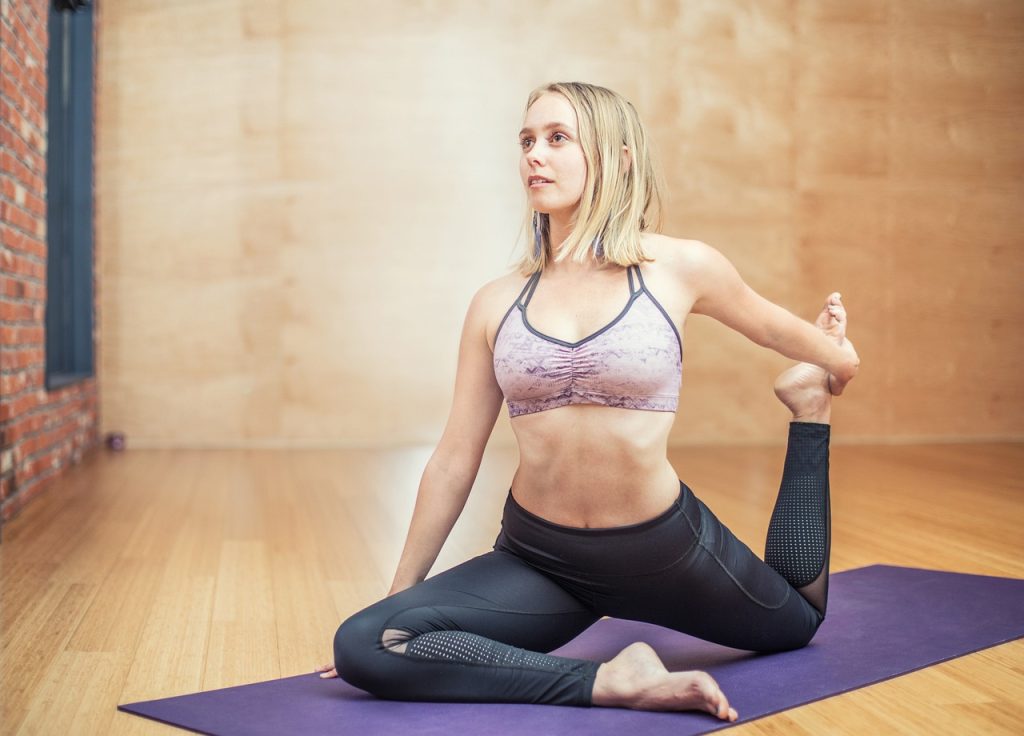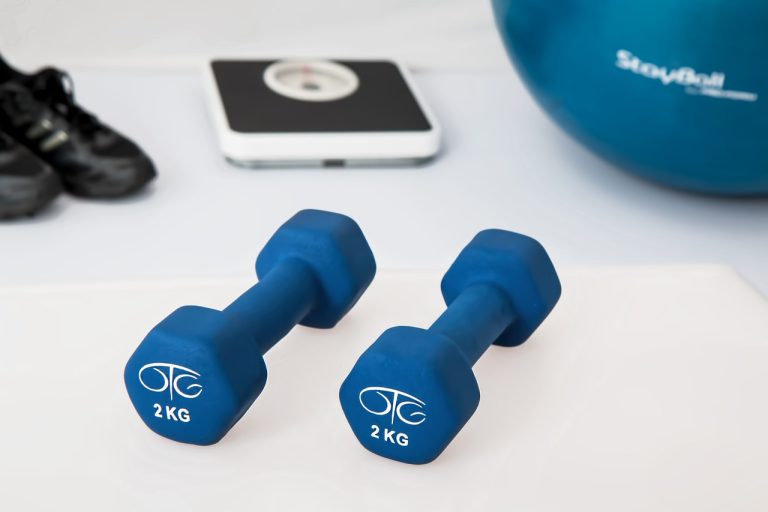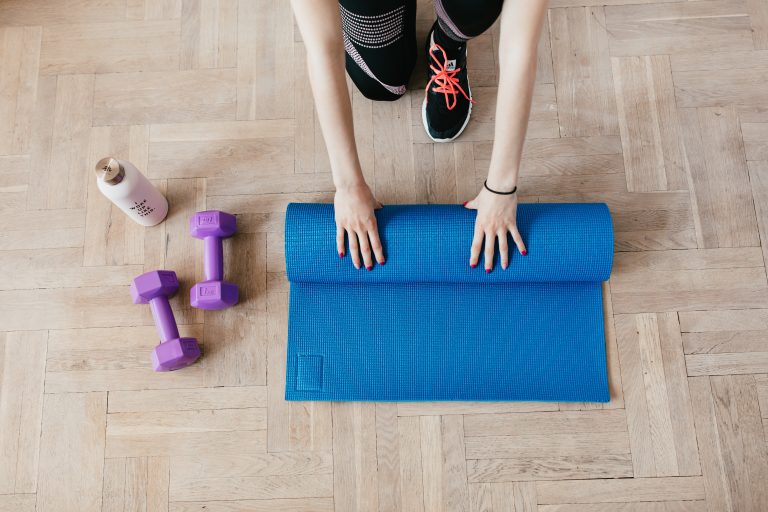If you’re in London and looking to find a personal trainer, you’re in luck! In this bustling city, fitness enthusiasts are spoiled for choice when it comes to finding the perfect personal trainer to help them reach their health and fitness goals. But with so many options available, it can be overwhelming to know where to start. Don’t worry, though – this article will provide you with some valuable tips and advice on how to find the best personal trainer in London who can tailor their services to meet your individual needs. So, get ready to embark on an exciting fitness journey and discover the perfect personal trainer to guide you along the way.
Table of Contents
TogglePersonal Trainer Qualifications
Certified Personal Trainers
When searching for a personal trainer in London, one of the most crucial factors to consider is their qualifications. It is essential to choose a certified personal trainer who has undergone the necessary training and education. Certification ensures that the trainer has met specific standards and possesses the knowledge and skills required to help you reach your fitness goals safely and effectively.
Specialized Certifications
In addition to being certified, it is worth looking for a personal trainer who holds specialized certifications. These certifications demonstrate the trainer’s expertise in specific areas, such as strength training, cardiovascular exercise, or post-rehabilitation training. Depending on your fitness goals and needs, finding a trainer with these specialized certifications can greatly enhance the quality of your training experience.
Reputation and References
Another important aspect to consider is the reputation and references of a personal trainer. It is always beneficial to hear from others who have worked with the trainer to get an idea of their professionalism, effectiveness, and ability to tailor workouts to individual needs. Seek out testimonials or ask the trainer for references that you can reach out to directly. By doing so, you can gain valuable insights into the trainer’s abilities and determine if they are the right fit for you.
Fitness Goals and Needs
Identifying Your Fitness Goals
Before embarking on the search for a personal trainer, it is crucial to identify your specific fitness goals. Are you looking to lose weight, build muscle, improve endurance, or enhance overall fitness? By clearly defining your objectives, you can find a personal trainer who specializes in the type of training that aligns with your goals. This will ensure that you receive the guidance and expertise necessary to achieve the results you desire.
Specific Training Preferences
In addition to your fitness goals, it is important to consider your specific training preferences. Do you prefer one-on-one sessions or group sessions? Are you more inclined towards strength training or cardio workouts? Understanding your preferences will enable you to find a personal trainer who can customize your training program to match your preferences, ensuring that you are engaged and motivated throughout the process.
Finding a Trainer With Expertise in Your Needs
Once you have identified your fitness goals and training preferences, it is time to find a personal trainer in London who specializes in your specific needs. You may come across trainers who excel in weight loss programs or those who focus on functional training. Take the time to research trainers who have experience in the areas that align with your goals. This expertise will allow them to design a personalized program tailored to your needs, maximizing your chances of achieving your desired results.
Location and Facilities
Convenient Location
When searching for a personal trainer, consider the location of their training facility. It is essential to find a trainer whose facility is conveniently located for you. A location that is easily accessible and close to your home or workplace will make it easier to commit to your training sessions. Avoid long commutes that can become an obstacle to consistent workouts. Prioritize finding a personal trainer with a facility that is conveniently located for you.
Availability and Schedule
In addition to location, the availability and schedule of the personal trainer are critical factors to consider. Make sure the trainer can accommodate your preferred training times and availability. Discuss their schedule and your availability to ensure that you both can commit to a consistent training routine. Clear communication and mutual agreement on training sessions will contribute to a smooth and productive training experience.
Gym Facilities and Equipment
Evaluate the gym facilities and equipment available at the trainer’s facility. Ensure that the gym is well-equipped with a variety of exercise machines, free weights, and cardio equipment. A well-maintained and clean facility will contribute to a pleasant training experience. Check if the equipment is in good condition, and if the gym has adequate space for different workout routines. The quality of the facility and equipment plays an important role in the effectiveness and enjoyment of your training sessions.
Budget and Prices
Determining Your Budget
Before choosing a personal trainer, it is essential to determine your budget for personal training services. Personal training can vary in cost, depending on the experience and expertise of the trainer, as well as the location and facilities they offer. Establish a realistic budget that aligns with your financial capabilities. Take into consideration that personal training is an investment in your health and well-being, and prioritize the quality and expertise of the trainer over cost alone.
Comparing Prices and Packages
Once you have determined your budget, it is time to compare prices and packages offered by different personal trainers in London. Take into account what each package includes, such as the number of training sessions, duration of each session, and additional amenities. Carefully evaluate the value for money that each trainer offers, ensuring that the price aligns with the services provided.
Beware of Hidden Costs
When comparing prices, it is important to be aware of any potential hidden costs. Some trainers may charge additional fees for personalized nutrition plans, fitness assessments, or progress tracking tools. Make sure to inquire about any possible additional costs upfront, so you can accurately assess the overall price and understand what services are included. Transparency is crucial to avoid any surprises down the road.
Trainer’s Training Style and Approach
Motivational Techniques
Every personal trainer has their own unique training style and approach. Consider their motivational techniques and how they align with your personality and preferences. If you thrive under positive reinforcement and encouragement, look for a trainer who utilizes these techniques effectively. On the other hand, if you prefer a trainer who pushes you to your limits, find someone who is known for their challenging workouts. It is important to find a trainer whose training style resonates with you and keeps you motivated throughout your fitness journey.
Communication and Feedback
Effective communication is key to a successful trainer-client relationship. Assess the trainer’s ability to listen attentively and communicate clearly. They should be able to explain exercises, techniques, and expectations with ease. Look for a trainer who actively seeks your input and feedback, ensuring that the training program can be adjusted as needed. A trainer who values open communication and actively engages with you during your sessions will contribute to a positive and productive training experience.
Teaching and Safety Measures
Safety should always be a priority when working with a personal trainer. Find a trainer who emphasizes proper technique and form to reduce the risk of injury. They should ensure that you understand how to perform exercises correctly and provide guidance on modifications or alternatives when necessary. Assess whether the trainer emphasizes warm-ups, cool-downs, and stretching routines to optimize your physical well-being. A trainer who prioritizes teaching and safety measures will contribute to a safe and enjoyable training experience.
Trainer’s Experience and Expertise
Years in the Industry
When choosing a personal trainer, consider their years of experience in the fitness industry. While experience alone is not a guarantee of competence, it can be an indicator of the trainer’s ability to adapt to different needs and provide effective guidance. Trainers with years of experience have likely worked with a diverse range of clients and encountered various fitness challenges. Their experience can bring valuable insights and a deep understanding of different training methods and approaches.
Specializations and Areas of Expertise
In addition to experience, it is important to consider the trainer’s specializations and areas of expertise. Some trainers may have certifications or extensive knowledge in specific areas, such as weight loss, sports performance, or rehabilitation. If you have specific goals or requirements, finding a trainer who specializes in those areas can greatly enhance your training experience. Their expertise will ensure that you receive targeted and effective guidance tailored to your unique needs.
Client Success Stories
Client success stories are a great way to gauge the effectiveness of a personal trainer. Look for testimonials or case studies highlighting the trainer’s ability to help clients achieve their goals. These success stories can give you valuable insights into the trainer’s capabilities and the results they have been able to deliver for others. Requesting client references and reaching out to past or current clients can also provide firsthand information about their experiences and outcomes.
Fitness Assessments and Progress Tracking
Initial Fitness Assessment
A comprehensive fitness assessment at the beginning of your training journey is crucial. A good personal trainer will conduct an initial assessment to evaluate your current fitness level, strengths, weaknesses, and any potential limitations. This assessment can include body measurements, flexibility tests, strength tests, and cardiovascular evaluations. The information gathered from the assessment will allow the trainer to design a personalized training program that suits your specific needs and goals.
Regular Progress Evaluations
Tracking your progress is essential to stay motivated and ensure that you are on the right track towards achieving your fitness goals. A good personal trainer will conduct regular progress evaluations to assess your development and make necessary adjustments to your training plan. These evaluations can include body composition analysis, strength assessments, and measurements of endurance and flexibility. Regular progress evaluations will help both you and the trainer stay accountable and ensure that you are making continuous progress.
Measurement Tools Used
When choosing a personal trainer, consider the measurement tools they use to track your progress. Advanced tools such as body fat calipers, fitness apps, and wearable devices can provide more accurate and detailed insights into your progress. Additionally, some trainers may use before and after photos or performance metrics to assess improvement. Understanding the measurement tools used by a trainer can give you a clearer picture of how they will track your progress and keep you accountable.
Trial Sessions and Consultations
Requesting Trial Sessions
Before committing to a personal trainer, it is advisable to request trial sessions. Many trainers offer trial sessions that allow you to experience their training style, assess their abilities, and determine how well you connect with them. These trial sessions will give you a taste of what to expect and help you make an informed decision. Take advantage of these opportunities to see if the trainer’s approach, communication style, and overall dynamics align with your preferences and needs.
Consultations and Initial Assessments
In addition to trial sessions, consider scheduling consultations or initial assessments with potential personal trainers. These sessions provide an opportunity to discuss your fitness goals, ask questions, and share any concerns you may have. Use this time to assess the trainer’s knowledge, communication skills, and ability to understand and address your specific needs. Treat these consultations as interviews, and gather as much information as possible to make an informed decision.
Asking the Right Questions
During trial sessions and consultations, it is crucial to ask the right questions. Some key questions to consider include:
- What is your training philosophy?
- How do you tailor programs to individual needs?
- Can you provide examples of clients you have helped achieve similar goals?
- What are your thoughts on nutrition and its role in fitness?
- How do you handle injuries or limitations?
Asking the right questions will give you further insight into the trainer’s expertise, approach, and suitability for your needs.
Client Reviews and Testimonials
Online Reviews and Ratings
When researching personal trainers, make full use of online platforms that provide reviews and ratings. Websites such as Google, Yelp, and fitness directories often have reviews and testimonials from clients. These reviews can give you a general sense of a trainer’s reputation and the experiences of others who have worked with them. Pay attention to both positive and negative reviews, and look for recurring themes or comments that align with your specific needs and preferences.
Testimonials from Current and Past Clients
In addition to online reviews, specific personal trainers may have testimonials on their websites or social media platforms. These testimonials provide insights into the trainer’s capabilities and the results achieved by their clients. By reading or watching these testimonials, you can get a sense of the trainer’s client-focused approach and the impact they have had on individuals’ lives. Consider reaching out to these clients directly if possible to gather more detailed information about their experiences working with the trainer.
Requesting References
If you are considering a personal trainer, do not hesitate to request references. Personal trainers who are confident in their abilities and reputation will gladly provide references from current or past clients. Contact these references and ask relevant questions about their experiences, the trainer’s expertise, and the outcomes they achieved. This direct feedback will give you valuable insights into the trainer’s performance and their ability to cater to individual needs.
Finding Personal Trainers in London
Online Directories and Platforms
An excellent place to start your search for personal trainers in London is online directories and platforms specifically dedicated to fitness professionals. Websites like the National Register of Personal Trainers or fitness directories allow you to search for trainers in your desired location and provide detailed profiles with qualifications, areas of expertise, and contact information. Make use of filters such as location, certifications, and specializations to narrow down your options and find trainers that meet your criteria.
Recommendations and Word-of-Mouth
Personal referrals from friends, family, or colleagues who have had positive experiences with personal trainers can be invaluable. Ask for recommendations and gather information about their personal training journeys. Word-of-mouth recommendations often provide trustworthy insights into a trainer’s abilities, reputation, and overall effectiveness. Take the time to inquire about their experiences and determine if any of the recommended trainers align with your specific goals and needs.
Social Media and Fitness Communities
Platforms such as Instagram, Facebook, and fitness communities can be excellent resources for finding personal trainers in London. Many trainers use social media to showcase their expertise, post workout routines, and engage with potential clients. Browse through relevant hashtags or join online fitness communities to find trainers who resonate with you. Social media also provides an opportunity to interact directly with trainers, ask questions, and get a feel for their personalities and approaches.
By utilizing online directories, seeking recommendations, and exploring social media platforms, you can find a personal trainer in London who suits your needs and goals. Remember to thoroughly evaluate their qualifications, reputation, and compatibility before making your final decision. Prioritize finding a trainer who can create a positive and challenging training experience tailored specifically to your individual needs. With the right personal trainer by your side, you can embark on a fulfilling fitness journey and achieve your desired results.








